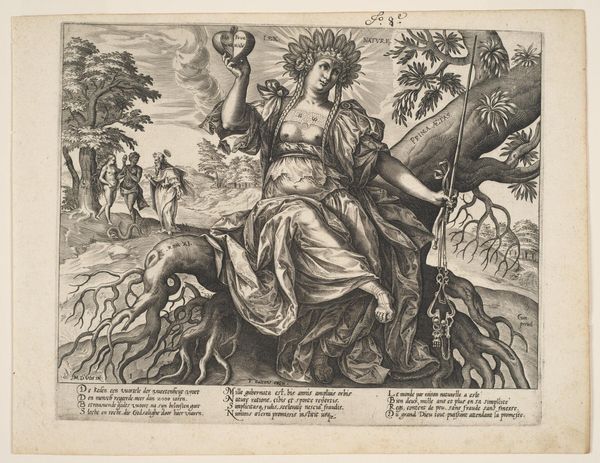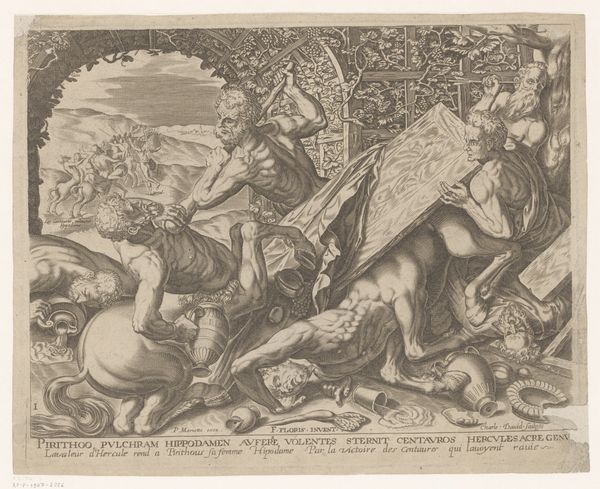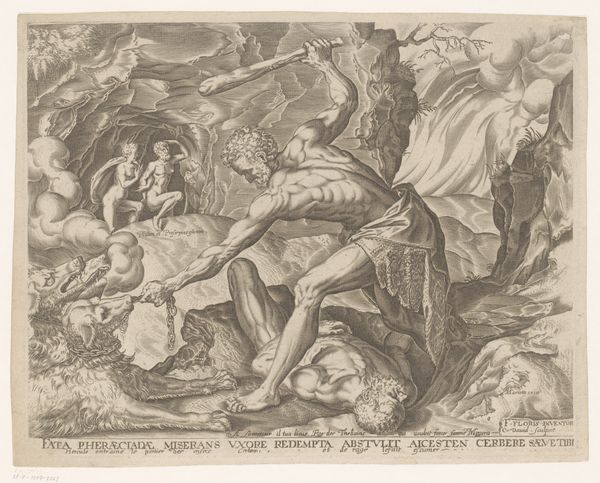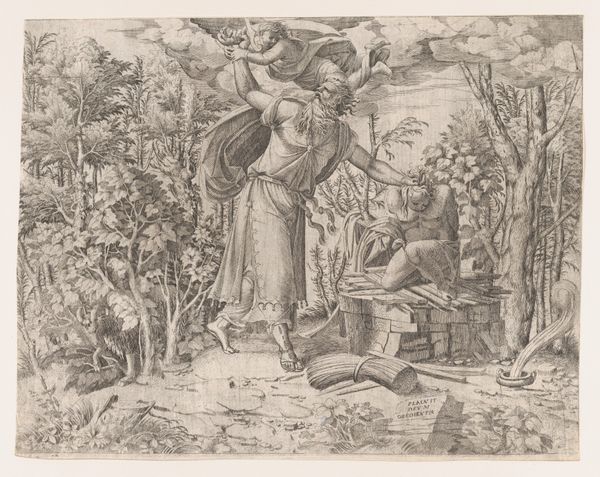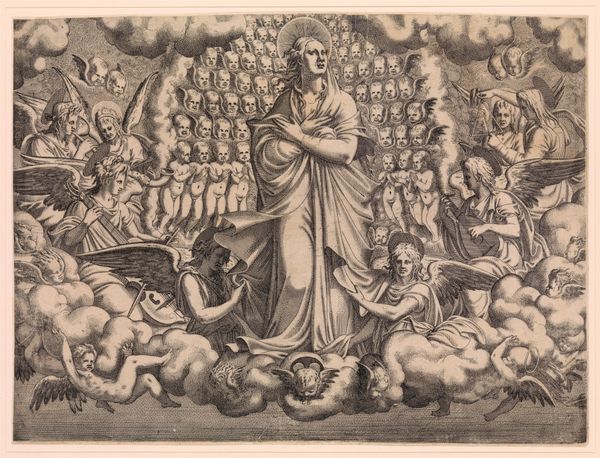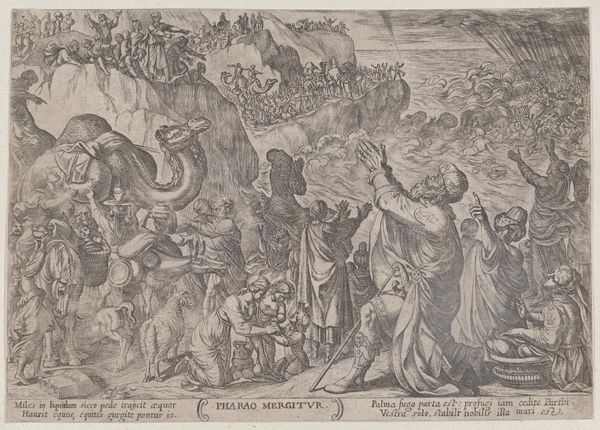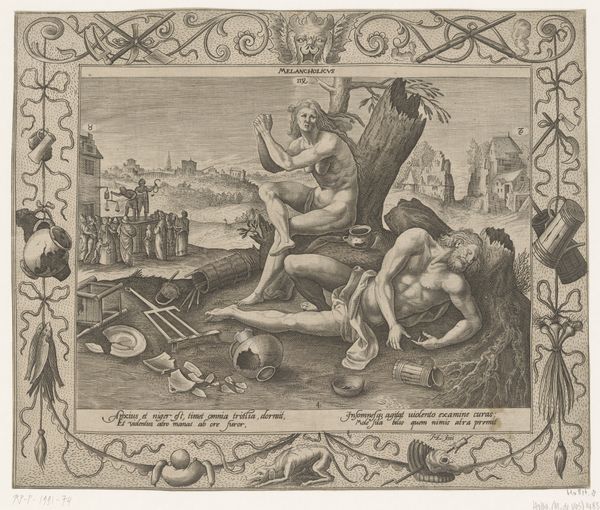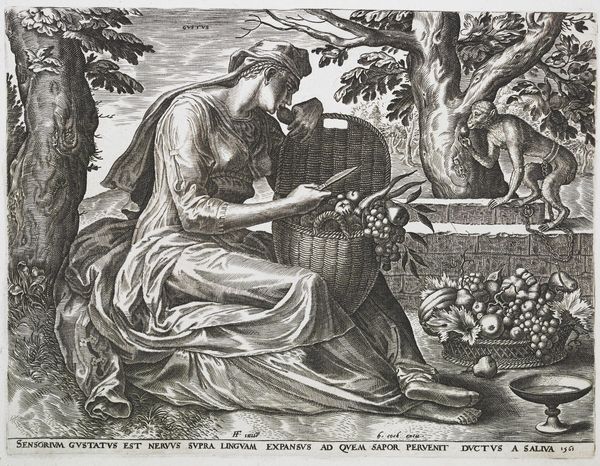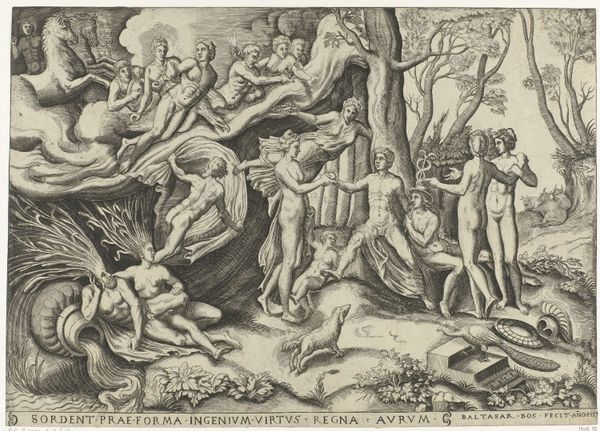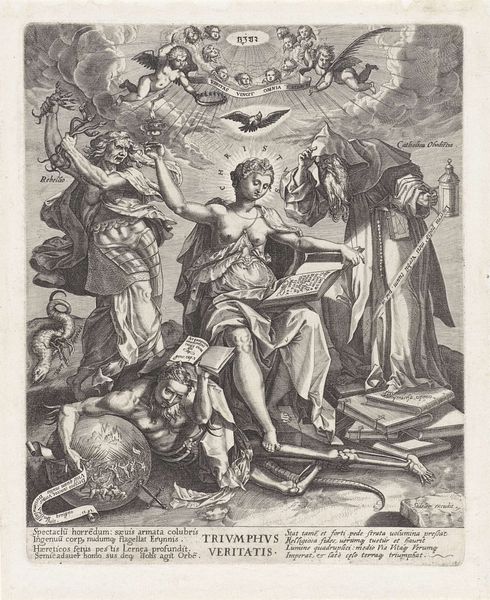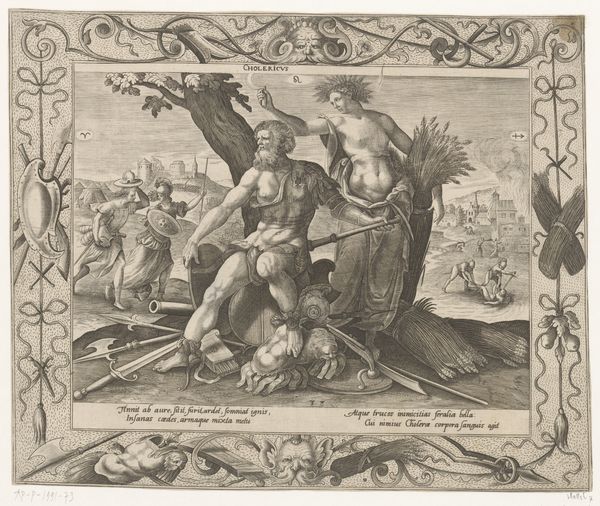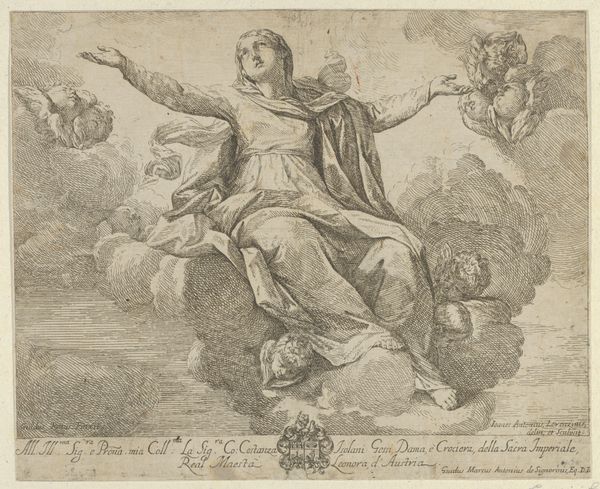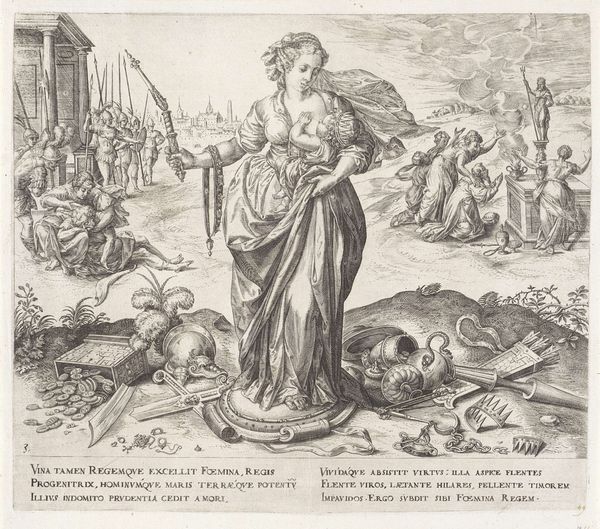
engraving
#
allegory
#
baroque
#
old engraving style
#
landscape
#
caricature
#
figuration
#
line
#
history-painting
#
engraving
Dimensions: height 371 mm, width 526 mm
Copyright: Rijks Museum: Open Domain
Giovanni Battista Pasqualini created this engraving of Orpheus charming the animals. The entire image is realized through line work incised into a metal plate, a labor-intensive process involving tools to physically cut or etch the design. The material qualities of metal lend themselves to precise detail, and the graphic nature of the medium relies entirely on the tonal contrast between the ink and paper. Look closely at the variations in line thickness and density; this is how Pasqualini created depth, texture, and the illusion of form. Engraving like this was not only a means of artistic expression, but a reproductive technology, allowing images and ideas to circulate widely. The skilled labor required speaks to the commercial demand for such prints. By understanding the material processes at play, we can appreciate the historical significance of this image, acknowledging the role of skilled craftsmanship within broader networks of production and consumption.
Comments
No comments
Be the first to comment and join the conversation on the ultimate creative platform.
